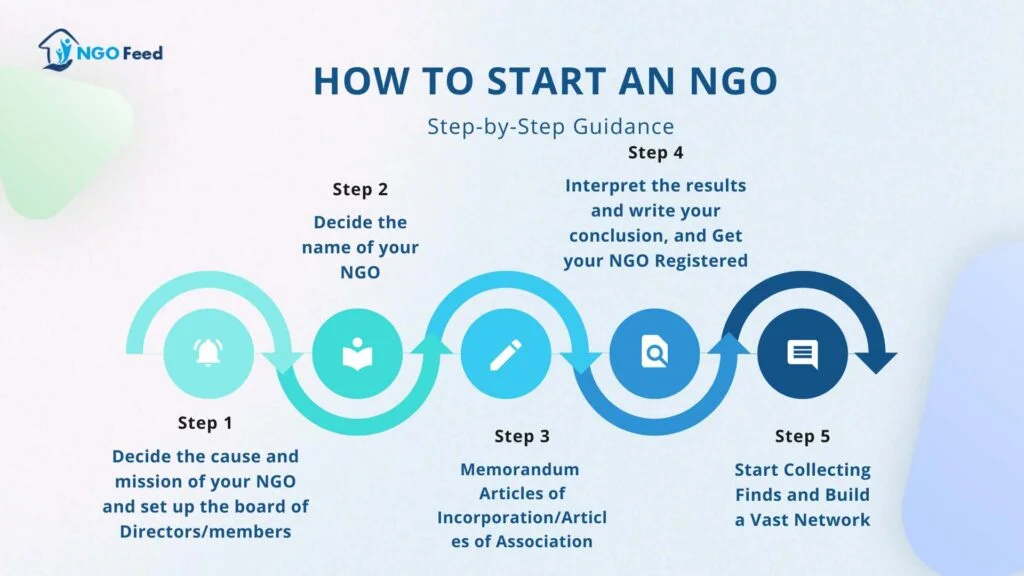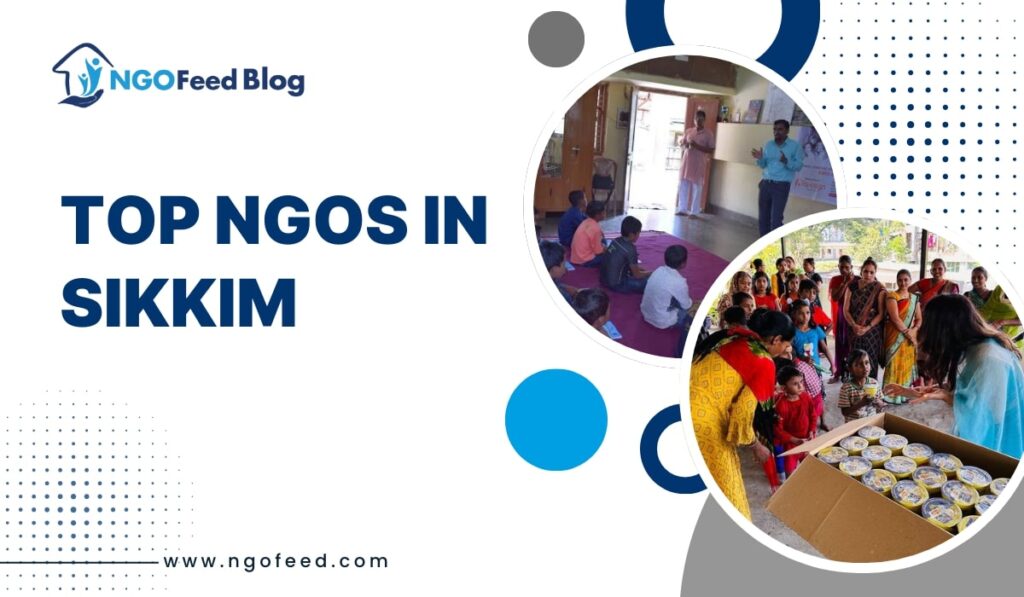Top NGO in Sikkim: Sikkim is a state in northeast India that shares borders with Bhutan, Tibet, and Nepal. Several nonprofits work hard for various categories to live a better society. Sikkim, like many other Indian states, has several non-governmental organisations (NGOs) working in multiple fields, including education, health, the environment, human rights, and rural development.
Several NGOs in India have developed and strengthened through their good works in the last few decades. However, only a few of them have impacted Society, and some are still working hard and serving the community. Some top NGO in Sikkim have reached a level, and some want to go where the Indian Society has seen their efforts. Despite being surrounded by all the troubles prevailing in our nation, it lacks transparency or the rate of corruption.
This article provides comprehensive information about the Top NGOs in Sikkim and how they positively impact Society by doing outstanding work in India. You can check the information about the Best NGO in Sikkim and some information about the NGO, what it is nonprofit, how to start an NGO, procedure, etc.
Table of Contents
What is NGO?
Before starting a complete article review, let’s first understand an NGO. An NGO is a non-governmental organisation in which the government has no role. People who have good money or business help people through NGOs. NGOs are a subgroup of organisations established by citizens, including clubs and associations that provide services to their members and others—an organisation aimed at the welfare of society. NGOs do much social work, such as housing widowed women, teaching poor orphans, protecting women, etc.
Role of NGOs in India
In this section, we provide detailed information about the Role of NGOs; you can check the table below.
- Particular Description: Advocacy for and with the Poor NGOs can act as spokespeople for low-income people, attempting to influence government policies and programmes. This can be accomplished through various methods, including demonstration and pilot projects, public forum engagement, government policy and strategies, and dissemination of research findings and impoverished case studies.
- Bridging the Gap: Non-governmental organizations (NGOs) work to fill in gaps in government programmes and reach out to those typically overlooked by government projects.
- Research and Development: These non-governmental organizations (NGOs) do research and assist in advancing knowledge on current topics. They come up with creative solutions to social problems based on research.
- Acts as a Middleman: It is a nonprofit venture that acts as a middleman and is not under the control of any governmental body. Its goal is to improve the welfare of citizens. Individual needs are assessed by NGOs, which operate as a middleman between Society and the government. They are respected globally because they seek aid in the financial sector and many economic, social, and political structures.
- Empowering women: NGOs take a stand against gender-based discrimination through our advocacy and initiatives. Together, we can create a world where everyone is treated fairly and respectfully, regardless of gender.
Also Read: Role of NGOs in Education
Top NGO in Sikkim 2025
Many excellent top NGO in Sikkim work in various areas such as education, healthcare, women’s empowerment, child rights, environmental conservation, old age, orphanage homes, food, and more. NGOFeed has been working for NGOs for a long time and provides research-based information on them. We have prepared a list of genuine NGOs in Sikkim that work hard to improve our society. Our list of famous NGOs in Sikkim is based on our team’s research and work. In this section, we provide a list of the top NGO in Sikkim, a short overview of the nonprofit organizations in a table format, and some statistics on how they have helped those in need.
2. Sikkim Divyang Sahayata Samiti
In the beginning (in the year 1986), Miss Draupadi Ghimirey (a nursing staff of STNM Hospital, Gangtok) used to take locomotive persons to Delhi, Kolkata, and Jaipur to fit artificial limbs. It was established in 1999 and was formally registered under the law department by the Sikkim government in 2001. Since its inception, it has been working to uplift physical challenges people.
Also Read: Digital Marketing for NGOs
| Name | Sikkim Divyang Sahayata Samiti |
| Types of Registration | Nonprofit organization |
| Founded | 1999 |
| Founder | Miss Droupadi Ghimiray |
| Area of Work | Education, Employment, Obtaining a Loan, Indira Awas etc., to the physically challenged persons. |
| Official Website | www.sikkimdivyang.org |
| Address | SIKKIM DIVYANG SAHAYATA SAMITI ZERO POINT, OPPOSITE OLD ASSEMBLY HOUSE, NH,-10, GANGTOK, SIKKIM -737101 |
| Contact Details | sikkim.viklang@gmail.com |
1. Anugyalaya Darjeeling Diocese Social Service Society
It is a social wing of the Roman Catholic Diocese running in various parts of Darjeeling and Kalimpong districts in West Bengal and the Sikkim State. The strategic and thematic themes of intervention are combined Livelihood, Natural Resource Management, Community Health, Child Rights, and Disaster Risk Reduction with Climate Change as a cross-cutting problem.
| Name | Anugyalaya Darjeeling Diocese Social Service Society |
| Types of Registration | Nonprofit organization |
| Founded | 2001 |
| Founder | Samuel Lepcha |
| Area of Work | Gender, Water, Tourism, Business & Finance, Human Rights, Health, Disaster Management, Child & Youth Development, Agriculture, Food & Nutrition and Animal & Wildlife. |
| Official Website | www.anugyalaya.org |
| Address | Loreto Convent Road, Darjeeling, West Bengal 734101 |
| Contact Details | contact@anugyalaya.org |
Also Read: Social Media for NGO
How to Start an NGO?
Before starting an NGO, you should know the fundamental problems of people in the area you want to reduce. Knowing this, it becomes easier to formulate the purpose and mission of your NGO accordingly. After this, you must decide the NGO’s vision, mission and purpose.
People with problems must work accordingly because no one listens to many people’s concerns. Therefore, the purpose of any NGO should be to understand the people’s problems and start their NGO accordingly.
Also Read: Digital Storytelling for NGOs
Steps to quickly start an NGO in India:
Here, we provide information about starting an NGO and follow these easy steps. Let’s see.

NOTE: Do you want to know how to start an NGO?
How to Register an NGO?
The NGO registration process takes place in three ways. We can also say that NGOs can be registered in any of the three Acts. Let us know what these three acts are.
- Trust Act (Charitable Trust Registration Process)
- Society Act (Society Registration Process in India)
- Companies Act (Section 8 Company Registration)
Frequently Asked Questions (FAQs)
What exactly is a non-governmental organization (NGO)?
It is a nonprofit organization. An NGO is a nonprofit organization that
works for a social cause.
What can I contribute to an NGO?
You locate the appropriate Ngo and donate. Hundreds of worthy
causes are vying for your money. All you have to do now is figure out what your
priorities are.
What can I do to help an NGO?
You can help an NGO by donating, conducting social work, promoting it, volunteering, interning and supporting it.
Apart from money, what kind of assistance is genuinely valued by people who work with NGOs/charity organizations?
1. Volunteering for any odd jobs that come up.
2. Providing legal, fund management, marketing, and taxation expertise, among
other things.
3. Documentation.
4. Establishing a network and cultivating a constituency.
Which is preferable: actively assisting others or donating to non-governmental organizations?
In both directions. If an NGO is rated as excellent, they are
helping people. As a result, contributing to them is a beautiful idea. It’s all
up to you.

